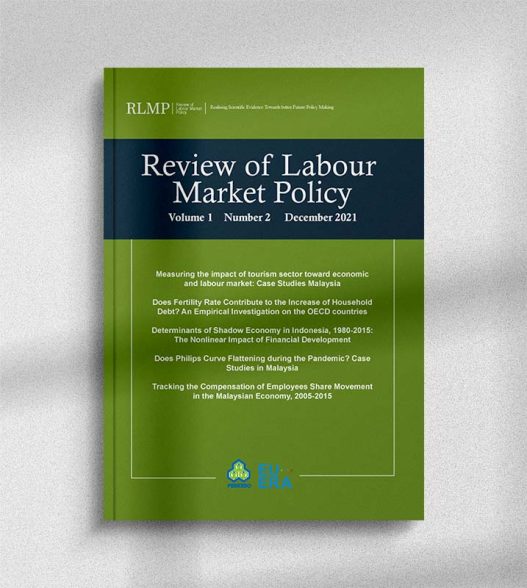
Review of Labour Market Policy
Review of Labour Market Policy (RLMP) is the official journal of EU-ERA that aims to facilitate the dialogue between policymakers, administrators, academicians, and researchers interested in new database development and model approaches in designing and evaluating labour market policies. RLMP also promotes the inter-linkages between the labour market and its connection to various topics such as investment, trade, income distribution, poverty, social policy, demography and ageing, and migration. The journal operates a double-blind peer review system by retaining the anonymity of both authors and reviewers.
Aims and scope
Labour market indicators and their economic linkages are among the most important statistical measures for research and policy at the national, regional and local levels. Analyses often rely on the survey-based indicators that are valuable but nonetheless incomplete barometer of labour market conditions. For example, the consequences of Covid-19 pandemic clearly provide a signal for policy makers to have up-to-date databases and the need for alternative measures of labour market conditions. A more complete assessment of labour market conditions would take into account characteristics of the unemployed that might affect their employability-for example, how long they have been without work and their skills in relation to the requirements of available jobs. Existing survey data may provide an incomplete and noisy picture of the characteristics of potential job candidates and their labour market histories. Further, any full assessment of labour market conditions would consider the demand side as well as the supply side of the labour market.
Review of labour Market Policy aims at facilitating the dialogue between policy makers, administrators, academics and researchers interested in new database development and model approaches in the design and evaluation of labour market policies. Furthermore, this journal also promotes the inter-linkages between labour market and its connection to wide range of topics such as investment, trade, income distribution, poverty, social policy, demography and aging, and migration. The current focus of this journal is on following research areas (not limited to):
Editorial Board
EDITOR-IN-CHIEF
Mohd Yusof Saari
Centre for Future Labour Market Studies, Malaysia
Universiti Putra Malaysia, Malaysia
MANAGING EDITOR
Muhammad Daaniyall Abd Rahman
Universiti Putra Malaysia, Malaysia
EDITORIAL STAFF
Muhamad Zharif Luqman Hashim
Centre for Future Labour Market Studies, Malaysia
EDITORIAL MEMBERS
Muzafar Shah Habibullah
Universiti Putra Malaysia, Malaysia
Sharifah Azizah Haron
Universiti Putra Malaysia, Malaysia
Asan Ali Golam Hassan
Universiti Teknologi Malaysia, Malaysia
Goy Siew Ching
Universiti Malaysia Sarawak, Malaysia
Norma Mansor
Universiti Malaya, Malaysia
Wan Ahmad Amir Zal Wan Ismail
Universiti Malaysia Kelantan, Malaysia
Shufique Fahmi Ahmad Sidique
Universiti Putra Malaysia, Malaysia
EDITORIAL MEMBERS
Fakarudin Kamarudin
Universiti Putra Malaysia, Malaysia
Wye Chung Khain
Universiti Kebangsaan Malaysia, Malaysia
Hazrul Izuan Shahiri
Universiti Kebangsaan Malaysia, Malaysia
Abdul Rais Abdul Latif
Universiti Sains Malaysia, Malaysia
Baharom Abdul Hamid
INCEIF University, Malaysia
Shankaran Nambiar
Malaysian Institute of Economic Research, Malaysia
Badariah Haji Din
Universiti Utara Malaysia, Malaysia
INTERNATIONAL ADVISORY BOARD
H.W.A. Erik Dietzenbacher
University of Groningen, the Netherlands
Manfred Lenzen
University of Sydney, Australia
Satoshi Inomata
Institute of Developing Economies, Japan
K. Ali Akkemik
Yamaguchi University, Japan
Ibrahim Kabiru Maji
Bauchi State University, Nigeria
Jiansuo Pei
Renmin University of China, China
Tomislav Gelo
University of Zagreb, Croatia
Murat Yulek
OSTIM Technical University,Turkiye




